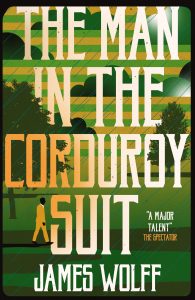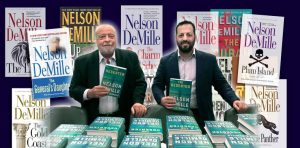How many threads connect us to story tellers whether an author or a singer/songwriter? In this episode, Larry chats with James Wolff author of the book The Man in the Corduroy Suit. Larry loves spy novels and asks how James picked his “pen name”. James shares what genre of book tickles his fancy and some of his favorite authors. Larry speaks about the idea of a “public life”, “private life” and a “secret life” and asks James about each and how they help him develop his characters. In the world of intelligence, it is a “zero sum game” because in the end there isn’t much progress and James gives his thoughts. Larry asks if James knows what his characters sound like, whether accent or tone of voice. James, being a former intelligence agent, has to have his work vetted by his previous employer with a rather mysterious process. Larry asks how sharing intelligence between Britain and the US happens. Larry and James talk about Russia, Brexit and Ukraine and how things have changed from the “good old days”.

After the break, Larry is joined by return guest Pete Mancini. Pete joins the podcast with the song Golden Hour. Larry asks how Pete felt being in Georgia during the time of recent Supreme Court decision regarding election indictments. Pete shares an update since being the band Butchers Blind and has put out 3 albums. Larry talks about how special music can be including being transported back in time. Pete then plays The Law of the River and speaks about inspiration behind the song. Larry asks exactly “what is American music” talking about all that has evolved from the American experience and Larry expands the question to talk about how Pete expands his roots to develop his art. Pete shares what he listens to so he can “tune out” and get lost in music. Pete ends the podcast with his work Madison Avenue Blues.
Podcast: Play in new window | Download


